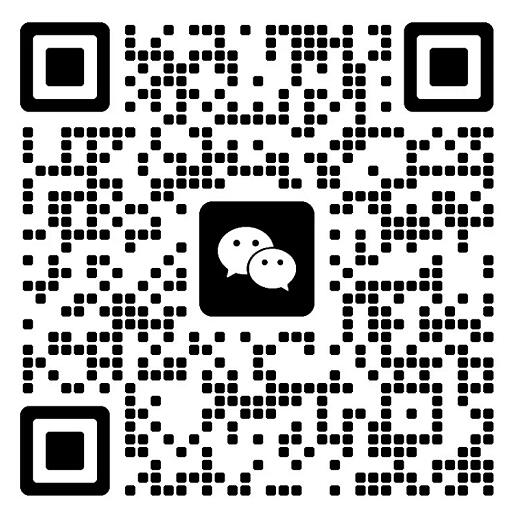招生咨询08:00-24:00

微信公众号

咨询老师
Chapter 4. Cultural Differences in Everybody Conversations
1. Vocatives and culture
Names(English people have given names, surnames, full names, with or without a title, and nicknames or pet names.)
|
Religious names |
Chinese versions |
Meaning chinewe |
|
Christian |
克里斯蒂安 |
基督信徒 |
|
Christopher |
克里斯多弗 |
基督的仆人,基督的使者 |
|
Eliot |
埃利奥特 |
上帝的礼物 |
|
Elisha |
埃力沙 |
上帝是救世主 |
|
Godwin |
戈德温 |
上帝的朋友 |
|
John |
约翰 |
上帝是仁慈的 |
|
Jonathan |
乔纳森 |
上帝所赐 |
|
Joseph |
约瑟夫 |
上帝赐我一个儿子 |
|
Lemuel |
莱缪尔 |
属于上帝 |
|
Timothy |
蒂莫西 |
上帝尊荣 |
|
Angela |
安琪拉 |
天使 |
|
Astride |
阿丝特莉德 |
上帝的力量 |
|
Dorothy |
多萝西 |
上帝的礼物 |
|
Elizabeth |
伊丽莎白 |
上帝的祭品 |
Name related to the plant and flowers
|
Plant or flower names |
Chinese versions |
Meaning in Chinese |
|
Camellia |
卡梅丽娅 |
山茶花 |
|
Daisy |
戴西 |
雏菊 |
|
Daphne |
达芙妮 |
月桂 |
|
Evelyn |
伊芙琳 |
榛子 |
|
Flora |
弗洛拉 |
花朵 |
|
Heather |
希维尔 |
石南花 |
|
Iris |
艾丽丝 |
蝴蝶花 |
|
Ivy |
艾维 |
常青藤 |
|
Laura |
劳拉 |
月桂 |
|
Lily |
莉莉 |
百合 |
|
Muriel |
穆丽尔 |
没药花 |
|
Rhoda |
罗达 |
玫瑰 |
|
Susanna |
苏珊娜 |
百合 |
|
Viola |
维黛拉 |
紫罗兰 |
Name related to the weapons
|
Weapon names |
Chinese versions |
Meaning in Chinese |
|
Barry |
马里 |
矛 |
|
Edgar |
埃德加 |
华美的矛 |
|
Gerald |
杰拉尔德 |
矛之王 |
|
Oscar |
奥斯卡 |
天赐之予 |
|
Gertrude |
格特鲁德 |
护矛女神 |
|
Giles |
贾尔斯 |
盾 |
|
Brenda |
布伦达 |
剑 |
Names related to knowledge, authority, fame are also quite common in English
|
Names of knowledge, authority,fame |
Chinese Versions |
Meaning in Chinese |
|
Abraham |
阿伯拉罕 |
万民之父 |
|
Alexander |
亚力山大 |
人类的保护者 |
|
Arthur |
亚瑟 |
勇敢,力大 |
|
Benjamin |
本杰明 |
心爱的儿子 |
|
Edmund |
埃德蒙 |
富有的保护者 |
|
Guy |
盖伊 |
领袖 |
|
Harold |
哈罗德 |
统帅 |
|
Henry |
亨利 |
家庭统治者 |
|
Herbert |
赫伯特 |
军队的光荣 |
But we can hardly find personal names in English that are related to historical events and date of the birth, English names more related to the Pikes, and Chinese names related to the “剑””盾”often. Personal names related to the place of birth and natural phenomena. are also popular in Chinese. And we seldom found the personal names in Chinese that are related to religion.
And English: (Mr[adult male], Mrs(for married women), Miss(for unmarried women), Ms(for women whose marital status is unknown or is not indicted))+surname
Chinese: in Chinese the terms that can be used as titles are numerous. For example”局长” “处长”etc.
In Chinese titles can be used in combination with the addressee’s given name, surname or full name. For example: “林同志” “德清同志” “林德清同志.”
standard appellatives
“mother” ”father” ”grandmother” etc can be used alone both in English and Chinese
“aunt” “uncle” are often used together with the addressee’s give name, but not in Chinese. For example, Uncle Tom, Aunt Mary
English speaking people can named their relative by using their name, but we can’t do like this in Chinese, even between brothers and sisters. For example: “大哥” “二哥” “二姐”
When addressing strangers, the Chinese people resort to “同志” “师傅” “先生” “小姐” “老爷爷” “伯父” “阿姨” “伯母” “大哥” “大嫂” “大兄弟” “大姐” “小朋友”
本文标签:山东自考 文学类 2020年山东自考语言与文化考试重点六
转载请注明:文章转载自(http://www.zk.sd.cn)
⊙小编提示:添加【山东自考网】招生老师微信,即可了解2023年山东自考政策资讯、自考报名流程、准考证打印方法、成绩查询时间以及领取历年真题资料、个人专属备考方案等相关信息!

(添加“山东自考网”招生老师微信,在线咨询报名报考等相关问题)
《山东自考网》免责声明:
(一)由于考试政策等各方面情况的不断调整与变化,本网站所提供的考试信息仅供参考,请以省考试院及院校官方发布公布的正式信息为准。
(二)本站文章内容信息来源出处标注为其他平台的稿件均为转载稿,免费转载出于非商业性学习目的,版权归原作者所有。如您对内容、版权等问题存在异议请与本站联系,我们会及时进行处理解决,联系邮箱:812379481@qq.com。